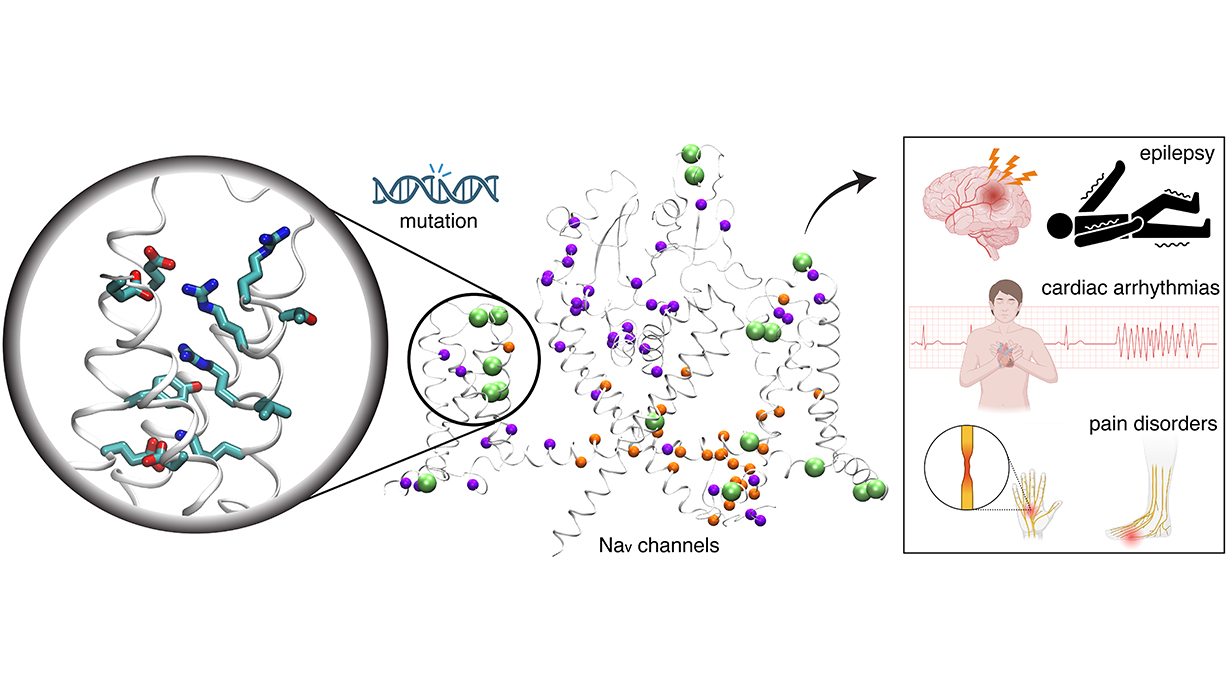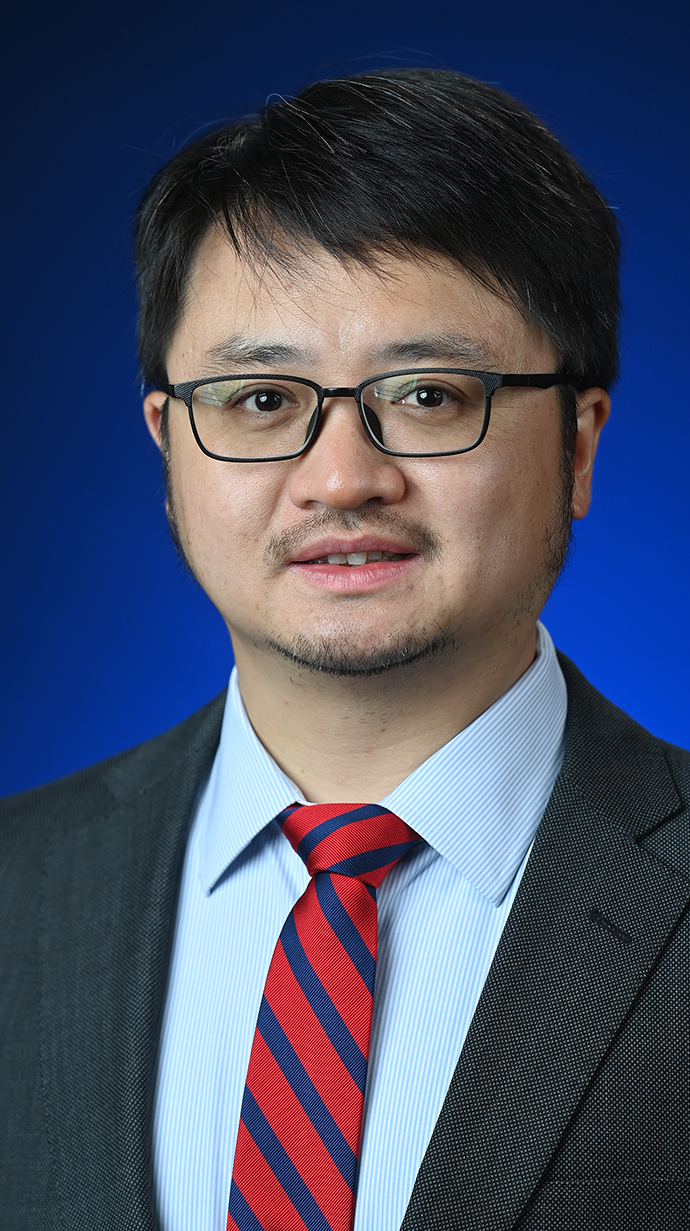Pharmacy Professor Receives NIH Grant to Study Protein Mutants
Jing Li to combine molecular simulation and AI to pursue ways to diagnose treat sodium channel disorders

OXFORD, Miss. – A University of Mississippi pharmacy professor will use a new grant from the National Institutes of Health to delve into how tiny changes in a cell's proteins can lead to large health problems.
The NIH awarded Jing Li, assistant professor of medicinal chemistry and research assistant, a five-year grant for $1.74 million. The project's goal is to find ways to prevent those future health problems, which can include brain and heart ailments.
He and his research group are studying how tiny changes, or mutations, in a cell's electrical communications, or voltage-gated sodium channels, can affect a person's health. Sodium channels are essential for nerve and muscle function in the body, but disease can strike when mutations occur, Li said.
"There are hundreds or even thousands of amino acids in each protein," he said. "But with a single acid substitution or change, it can cost normal function. That eventually leads to diseases."
Mutations in sodium channels are linked to diseases such as epilepsy, autism, heart arrythmias, chronic pain and even paralysis, he said.

If the mutations can be studied thoroughly, researchers hope to better predict a person's health.
"But simply knowing the DNA changes isn't enough," he said. "There are some very big mysteries – sometimes the same mutation, in the same position (of the protein sequence) can cause different diseases in different patients."
To better understand this occurrence, Li and his Ole Miss team will use molecular dynamic simulation, or a computational microscope, to assist them in visualizing – by zooming in – and studying the proteins in motion. Through this simulation, they can learn how the mutations can change the proteins' function at the atomic level.
"We also study how natural chemical 'tags' on these proteins, known as post-translational modifications, interact with mutations to make symptoms better or worse," he said. "By piecing together these molecular details, we hope to uncover why certain genetic changes cause disease and identify opportunities for more precise treatments."
The work promises to help improve health care for people in Mississippi and across the country, said Donna Strum, dean of the School of Pharmacy.
"Dr. Li's work exemplifies the power of scientific discovery to directly impact patient care," she said. "This prestigious grant not only recognizes his innovative approach to understanding complex diseases but also highlights how our faculty are leading the way in advancing precision medicine."
The grant allows Li to use his research to acquire data that he can use to develop an artificial intelligence, or a machine learning model to better diagnose patients and treat them more quickly.
"These tools will allow us to rapidly predict the impact of new mutations, providing insights far faster than traditional lab experiments alone," he said. "Then, we can use this model to make predictions for the new changes or mutations and determine whether the change is benign or pathological, which can help make the diagnosis much easier.
"Ultimately, our goal is to combine simulation and AI to develop better ways to diagnose and treat patients with sodium channel disorders, paving the way for personalized medicine and safer, more effective drugs for conditions that currently lack good therapies."
This material is based on work supported by the National Institutes of Health grant no. 1R35GM160133-01.
Top: This illustration shows a single amino acid mutation in a strand of DNA (left) found in a cell’s voltage-gated sodium channels (center). Such mutations can disrupt the body’s electrical signals and lead to diseases such as epilepsy, cardiac arrythmias and pain disorders. UM pharmacy professor Jing Li and his research group are using a new grant from the National Institutes of Health to study how a single mutation in a cell’s sodium channel can lead to diseases so that better drug treatment can be developed for patients. Illustration by Sydney Menear, Eslam Elhanafy and Jing Li/School of Pharmacy
By
Marisa C. Atkinson
Campus
Office, Department or Center
Published
September 18, 2025
